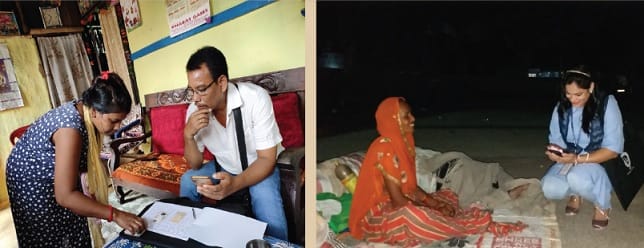Last Updated on April 30, 2025 11:14 pm by INDIAN AWAAZ
By Bibhudatta Pradhan
India will count the number of people in each layer of its caste hierarchy in the forthcoming census for the first time in nearly a century, a significant move that could reshape the political landscape of the world’s largest democracy.
The Central Committee on Political Affairs (CCPA) approved the inclusion of caste data in the population census, Information and Broadcasting Minister Ashwini Vaishnaw said at a press conference after the cabinet meeting on Wednesday. “This demonstrates that our government is committed to the values and interests of the society and country,” he said. However, he did not provide a timeline for when the delayed census would take place.
After initially resisting the idea, Prime Minister Narendra Modi’s Bharatiya Janata Party (BJP)-led coalition government has reversed its stance, agreeing to a nationwide caste census — a key demand of the opposition, including the Congress party. The decision marks a significant political shift, particularly as caste data collection was a central campaign theme for Congress leader Rahul Gandhi in the 2024 general elections. The move also comes ahead of crucial assembly elections in Bihar, a state where caste dynamics play a decisive role, scheduled for later this year.
Caste has long been a politically sensitive subject in India. The last time a full count of caste numbers was conducted was in 1931. In 2011, the Congress-led government undertook a Socio-Economic and Caste Census — a parallel exercise to the official census — but its findings were never released publicly, reportedly due to concerns over data accuracy and political fallout.
Since 1951, independent India’s census has only counted the population of underprivileged groups called Scheduled Castes and Scheduled Tribes, but no other castes or groups.
In recent years, political parties, including allies of BJP, demanded a caste census, essentially to know the population of a middle caste group called Other Backward Classes or OBCs.
The Congress party has argued that data from a caste-based census would help ensure a fairer distribution of resources and opportunities to those who need them most.
However, Vaishnaw dismissed the move as politically motivated, saying, Congress and its alliance partners have used the “caste census merely as a political tool.’’
India last conducted a full population census in 2011. The decennial exercise, scheduled for 2021, has been repeatedly delayed due to the Covid-19 pandemic, and there is still no official timeline for when it will take place.
In the absence of a national caste count, some states — including Bihar and Karnataka — have independently carried out their own caste-based surveys. However, the findings from these efforts have drawn criticism over issues of transparency and methodology.
“Some states have done this well, while some others have conducted such surveys purely from a political angle in a non-transparent way,’’ said Vaishnaw. “Such surveys have created doubts in society.’’
Vaishnaw emphasized that caste enumeration in the census will be conducted transparently. “This will strengthen the social and economic fabric of our society as the nation continues to move forward,’’ he said.
.

